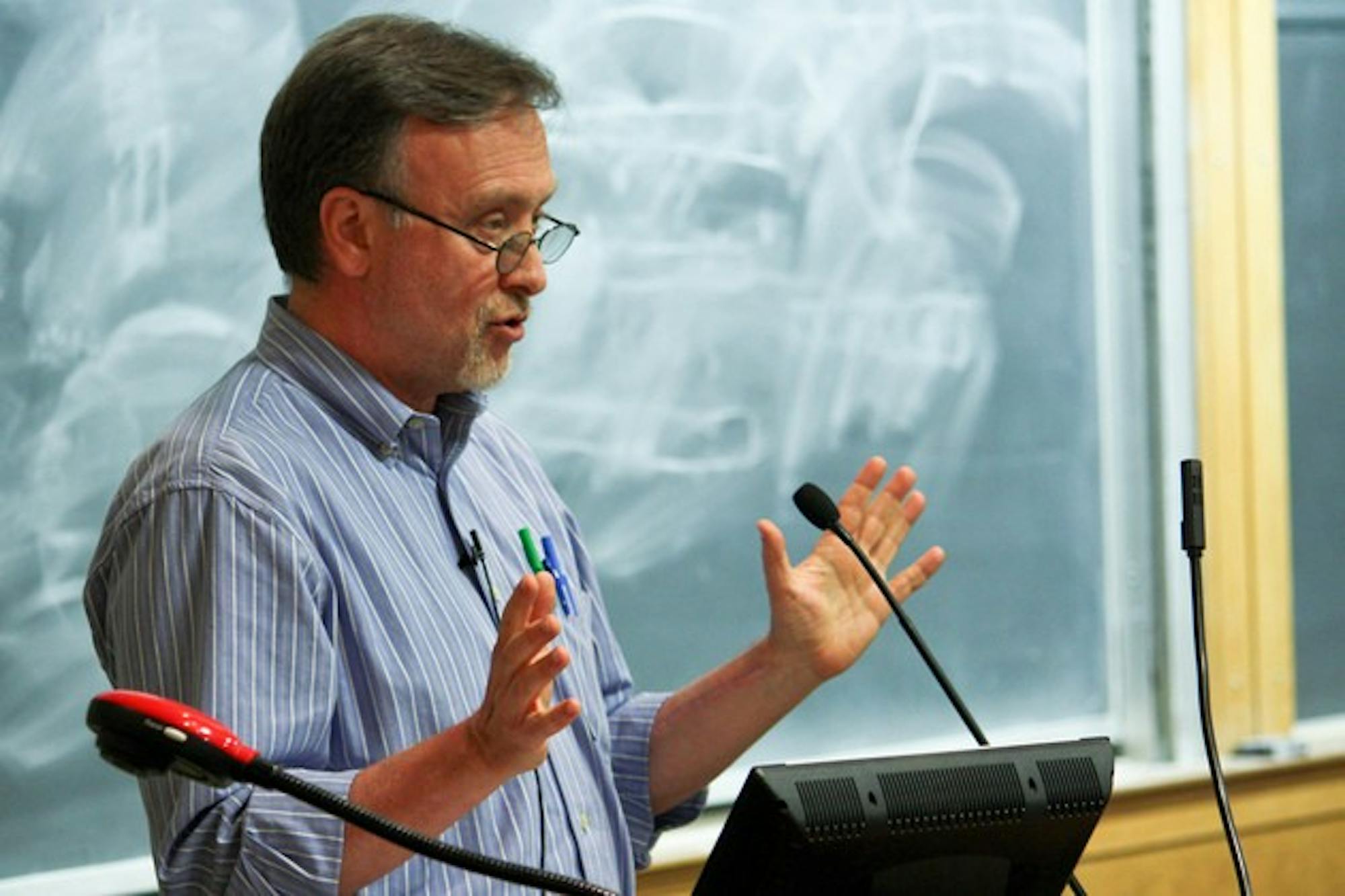D'Emilio discussed his research on the gay rights movement in his address, "Queering the Past, or: Richard Nixon: Gay Liberationist?," held in Filene Auditorium.
D'Emilio's research focuses on gay and lesbian communities in urban centers, including San Francisco, Harlem and Buffalo, N.Y., during the mid-20th century.
"It was the worst time to be queer," D'Emilio said of the period. "Women who wore pants with the zippers in the front could be arrested for impersonating men."
D'Emilio said he focused on Chicago because of the city's relatively unrecorded gay and lesbian history.
He said he found instances of significant discrimination based on sexual orientation in the Midwest, including Chicago Tribune articles that referred to homosexual individuals as "moral degenerates," "unmentionables" and "nest of perverts."
Police officers also regularly harassed gays and lesbians and raided gay bars at will, he said.
Gay and lesbian activists responded with demonstrations against police harassment in the late 1960s, D'Emilio said. Soon afterwards, police treatment of LGBT individuals improved, he said.
"After these militant protests started to occur, the harassment of gay bars in Chicago almost becomes history," D'Emilio said.
D'Emilio argued that the role of the activists in effecting change, however, was limited.
Discrimination against gays and lesbians by the Chicago police department did not come to an end until the beginning of Richard Nixon's presidency in 1969, D'Emilio said.
Nixon's appointment of Jim Thompson as the U.S. attorney for the northern district of Illinois led to important gains for the gay and lesbian community, he said. In his new role, Thompson demanded major structural changes within the police department.
"The attorney general and Justice Department were eager to do what no Democratic president would ever allow to investigate corruption in Chicago," D'Emilio said. "Exposing police extortion and harassment of bar owners all of a sudden it's not possible for police in Chicago to harass gay bars at will."
Improvements, therefore, resulted from administrative measures rather than bottom-up initiatives, D'Emilio said.
D'Emilio said he believes his research could challenge traditional views of the role activist groups have played in LGBT history.
"Am I about to start writing a new kind of history a history beyond the power of ordinary people?" he said. "Now, gay and lesbian stories will become less-separated and less self-contained, and will instead be seen as more integral to and connected to the broader narratives of U.S. history."
The Stonewall Lecture is hosted annually by the College's women and gender studies department.




